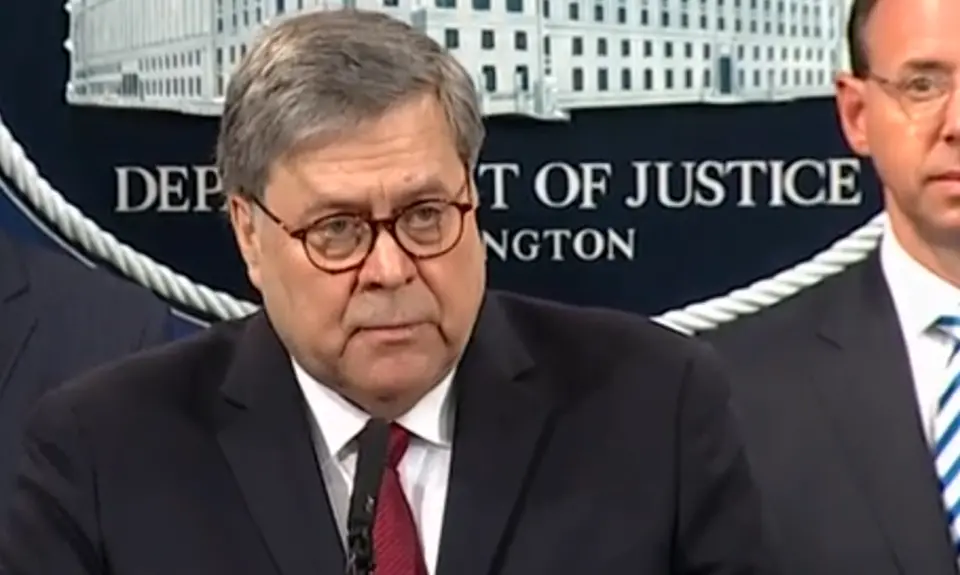On May 1 and May 2, Attorney General William Barr is expected to testify before the Senate and House Judiciary Committees concerning Robert Mueller’s final report. But if past is any prologue, Barr and Republican allies like Senate Judiciary Committee Chair Lindsey Graham will try to divert attention from the report and instead focus on Barr’s recent unfounded and inflammatory statements to other committees that “spying” by the FBI on the Trump presidential campaign “did occur” and that he wants to “explore that,” as Graham and other Republicans have pushed.
No one should accept these attempts at diverting attention from the crucial issues the Mueller report raises.
First, both the report and other sources make clear that two of the subjects of FBI investigation into Russian activities, Carter Page and Paul Manafort, had come to the attention of the FBI long before they even joined the Trump campaign. The FBI became concerned about Page back in 2013, before the Trump campaign even existed, because of his 2013 meeting with a Russian spy, who was prosecuted two years later. The FBI put Manafort under surveillance starting in 2014, and a Trump campaign official later blamed the FBI for not alerting them to its investigation of Manafort before he joined the campaign.
Second, the Mueller report confirms other reports that the FBI first began counterintelligence on individuals associated with the Trump campaign and Russian efforts to interfere with the 2016 election when it learned from a reliable intelligence ally (Australia) that Trump campaign official George Papadopoulos stated that a Russian agent told him that they could help the campaign by providing derogatory information on Hillary Clinton. Particularly in light of activity already under way concerning Russian efforts to influence our elections, it was not “spying” for the FBI to investigate that; indeed, it would have been negligent and potentially dangerous to our national security to have ignored it.
Most importantly, in an exercise of internal oversight, the Justice Department’s Inspector General began an investigation in 2018 into the origins of the Russia probe and allegations of anti-Trump bias, an independent investigation far preferable to a new inquiry by Barr. In fact, Barr’s predecessor Jeff Sessions commissioned another review of the subject by the U.S. Attorney in Utah, a move praised by Republicans. Other than diverting attention from troubling questions facing him, there is no good reason for Barr to take even more action or make this a centerpiece of his testimony before Congress.
Indeed, any effort by Barr and Lindsey Graham or other Republicans to focus on this issue must be viewed with skepticism based on Barr’s clearly partisan approach on a number of other key issues central to the Mueller report. Specifically:
- Why he won’t comply with the House Judiciary Committee subpoena to provide it with the full and unredacted Mueller report.
- What the explanation is for Barr’s attempts, both in his March 24 letter and his April 18 press conference, to mislead the public on the contents of the Mueller report. For example, Barr asserted on April 18 that Mueller did not base his decision not to charge Trump with obstruction of justice on the DOJ Office of Legal Counsel position that a sitting president cannot be so charged when, in fact, “this is the very opposite of what the Mueller report says.”
- What the true basis was for Barr’s decision to give the White House and Trump’s personal lawyers a copy of the redacted report some time before it was released to the public. Barr claimed at his press conference that he did it pursuant to the law that gave a person named in a report prepared by an Independent Counsel the chance to read such reports in advance. But that law expired years ago, and it does not apply to a Special Counsel like Mueller. As one commentator observed, this looks like another instance where Barr “ran interference for his boss.”
It is issues like these that hopefully will be the focus of the Barr hearings on the Mueller report, not Barr’s transparent attempt to divert attention by talking about FBI “spying.”
